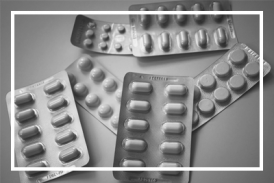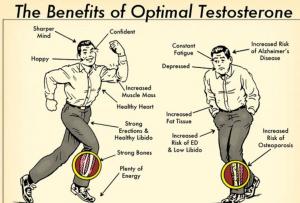Testosterone Replacement Therapy Shows Mixed Effects on Heart Disease Risk, According to New Research Studies
Men with hypogonadal symptoms (low libido, muscle loss, erectile dysfunction, fatigue, etc.) show benefits from properly dosed and monitored TRT services
A growing body of scientific research is shedding light on the complex relationship between testosterone replacement therapy (TRT) and cardiovascular health, prompting both optimism and caution among healthcare providers and patients.
Recent studies, including large-scale observational data and randomized controlled trials, have revealed that TRT may offer cardiovascular benefits to certain men with clinically diagnosed low testosterone levels, while also highlighting potential risks if therapy is misused or not properly monitored.
Key Findings from Recent Studies
The TRAVERSE Trial (2023): One of the largest studies to date, involving over 5,000 men with hypogonadism, found that TRT did not increase the risk of major adverse cardiovascular events (MACE) over a median follow-up of 33 months. In fact, treated men experienced fewer heart attacks and strokes compared to those not receiving therapy.
Meta-Analysis from the Mayo Clinic Proceedings (2022): A review of 36 studies showed that TRT was associated with neutral or mildly beneficial cardiovascular outcomes, particularly in men with metabolic syndrome or type 2 diabetes.
JAMA Internal Medicine (2021): This study cautioned that testosterone therapy in men without documented testosterone deficiency may lead to increased cardiovascular risk, underlining the importance of appropriate patient selection and medical oversight.
Expert Commentary
“Testosterone therapy, when prescribed to men with true hypogonadism and monitored closely, appears safe and may even improve cardiovascular outcomes,” said Dr. Alan Freeman, an endocrinologist at the Heart & Hormone Institute. “However, the key is medical necessity, proper dosing, and regular follow-up.”
Clinical Implications
With millions of men considering or undergoing TRT, these findings are especially relevant for clinicians evaluating patients with symptoms of low testosterone such as fatigue, reduced libido, and loss of muscle mass. TRT should not be used as an anti-aging or lifestyle enhancement drug, as inappropriate use may carry risks including blood clots, sleep apnea, and elevated hematocrit levels.
About the Research
These studies were funded and published by leading institutions, including the National Institutes of Health (NIH), American College of Cardiology, and Cleveland Clinic. Full details are available in peer-reviewed journals such as The New England Journal of Medicine, JAMA, and Circulation.
About Heart & Hormone Institute
The Heart & Hormone Institute is a leading research and clinical organization dedicated to optimizing men’s health through evidence-based hormonal and cardiovascular care.
Chris Rue
Metairie Optimal Performance Enhancement
+ +1 504-265-5491
info@mopeclinic.com
Visit us on social media:
LinkedIn
Instagram
Facebook
Legal Disclaimer:
EIN Presswire provides this news content "as is" without warranty of any kind. We do not accept any responsibility or liability for the accuracy, content, images, videos, licenses, completeness, legality, or reliability of the information contained in this article. If you have any complaints or copyright issues related to this article, kindly contact the author above.
Face Compact Market to Reach USD 2.2 Billion By 2031, Top Impacting Factors
USEA To Hold Press Briefing on Data Centers Upending Electric Utilities
The Chopin Law Firm Secures $2 Million Settlement in Commercial Vehicle Injury Case
Więcej ważnych informacji
 Jedynka Newserii
Jedynka Newserii

 Jedynka Newserii
Jedynka Newserii

Farmacja

Nowy pakiet farmaceutyczny ma wyrównać szanse pacjentów w całej Unii. W Polsce na niektóre leki czeka się ponad dwa lata dłużej niż w Niemczech
Jeszcze pod przewodnictwem Polski Rada UE uzgodniła stanowisko w sprawie pakietu farmaceutycznego – największej reformy prawa lekowego od 20 lat. Ma on skrócić różnice w dostępie do terapii między krajami członkowskimi, które dziś sięgają nawet dwóch–trzech lat. W Unii Europejskiej wciąż brakuje terapii na ponad 6 tys. chorób rzadkich, a niedobory obejmują również leki ratujące życie. Nowe przepisy mają zapewnić szybszy dostęp do leków, wzmocnić konkurencyjność branży oraz zabezpieczyć dostawy.
Handel
Wzrost wydobycia ropy naftowej nie wpłynie na spadek cen surowca. Kierowcy jesienią zapłacą więcej za olej napędowy

Sierpień jest trzecim z rzędu miesiącem, gdy osiem krajów OPEC+ zwiększa podaż ropy naftowej na globalnym rynku; we wrześniu nastąpi kolejna zwyżka. Kraje OPEC, zwłaszcza Arabia Saudyjska, chcą w ten sposób odzyskać udziały w rynku utracone na skutek zmniejszenia wydobycia od 2022 roku, głównie na rzecz amerykańskich producentów. Nie należy się jednak spodziewać spadku cen ropy, gdyż popyt powinien być wysoki, a pod znakiem zapytania stoi dostępność ropy z Rosji. Nie zmienia to faktu, że jesienią ceny paliw na stacjach zazwyczaj rosną, a w największym stopniu podwyżki dotyczyć będą diesla.
Nauka
Szacowanie rzeczywistej liczby użytkowników miast dużym wyzwaniem. Statystycy wykorzystują dane z nowoczesnych źródeł

Różnica między liczbą rezydentów a rzeczywistą liczbą osób codziennie przebywających w Warszawie może sięgać nawet niemal pół miliona. Rozbieżności są dostrzegalne przede wszystkim w dużych miastach i ich obszarach funkcjonalnych. Precyzyjne dane populacyjne są tymczasem niezbędne w kształtowaniu usług społecznych i zdrowotnych, edukacyjnych, opiekuńczych, a także w planowaniu inwestycji infrastrukturalnych. W statystyce coraz częściej dane z oficjalnych źródeł, takich jak Zakład Ubezpieczeń Społecznych, są uzupełniane o te pochodzące od operatorów sieci komórkowych czy kart płatniczych.
Partner serwisu
Szkolenia

Akademia Newserii
Akademia Newserii to projekt, w ramach którego najlepsi polscy dziennikarze biznesowi, giełdowi oraz lifestylowi, a także szkoleniowcy z wieloletnim doświadczeniem dzielą się swoją wiedzą nt. pracy z mediami.









.gif)

 |
| |
| |
|